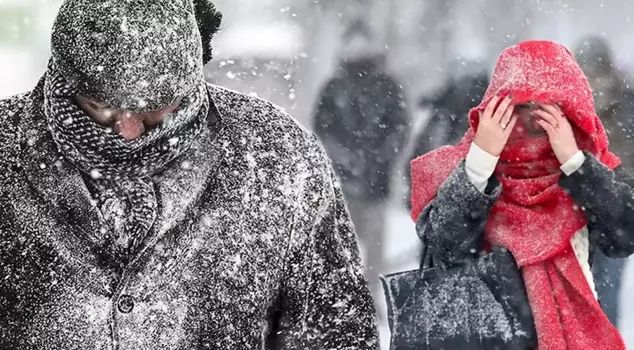
25.11.2025 16:45
According to meteorology experts, the first rain mixed with snow in Istanbul is expected to occur between January 14-19, while significant snowfall in the city center is anticipated on February 5-6.
According to the latest assessments by meteorology experts, the countdown has begun for the long-awaited snowfall in Istanbul. The first mixed rain with snow is expected to occur in mid-January, while significant snowfall in the city center is anticipated at the beginning of February.
SNOW CALENDAR FOR ISTANBUL IS BECOMING CLEARER
The first predictions regarding the frequently asked question "when will it snow?" in Istanbul have become clearer. Experts indicate that mixed rain with snow may be seen from mid-January, while the main snowfall could be effective in the first days of February.
BALKAN COLD IS PASSING BY, BUT...
Although the cold air wave coming from the Balkans is largely passing by Turkey, a significant drop in temperatures is expected. It is stated that the air temperatures, which have been above seasonal norms for a long time, will rapidly decline next week, with a drop of 5-6 degrees in many regions within a few days. While Turkey is leaving behind one of the driest November months in the last 50 years, the new cold air wave is expected to increase precipitation across the country.
FIRST SNOW EXPECTED BETWEEN JANUARY 14-19
According to evaluations made by AKOM and meteorology experts, the possibility of mixed rain with snow is prominent between January 14-19 in Istanbul. These precipitation events, which may be seen as wet snow, especially in coastal districts, are described as a "transition to winter" in the city. It is emphasized that there may be short-term snow transitions in some areas during this period, but the likelihood of a permanent cover forming is low.
MAIN SNOW EXPECTATION: FEBRUARY 5-6
Significant snowfall in the city center of Istanbul is expected to occur on February 5-6. Experts indicate that current models point to a stronger cold air wave for this period. According to predictions, there is a possibility of a snow cover of 1-5 centimeters in central districts and around 10-20 centimeters in higher elevations and western districts. It is reported that temperatures may drop below zero at night during this process, while daytime temperatures are expected to range between 1-4 degrees.
UNFORGETTABLE COLD WINTERS OF ISTANBUL
- In 1929, Istanbul was hit by heavy snowfall and storms. The Anatolian and European sides were connected due to ice chunks. Land and sea transportation were disrupted. Hungry wolves descended into the city center.
- In 1942, the temperature in Göztepe remained at 0 degrees for 10 days, 1 degree for 14 days, 3 degrees for 27 days, and did not exceed 5 degrees for 44 days.
- In 1954, Istanbul experienced freezing cold. Transportation was disrupted, and blizzards and snowfall halted ferry services on the Bosphorus. The Bosphorus was covered with ice chunks coming from the Black Sea. The idea of blasting the ice masses was even discussed. However, after a while, the ice melted and mixed with the waters of the Bosphorus.
- In the winter of 1963, the Terkos Lake froze, and the city was without water for days. There were shortages of food and fuel, and funerals could not be conducted due to adverse weather conditions. Hungry wolves descended into the city center due to the cold.
- In 1969, another severe winter was experienced. Büyükçekmece Lake, Küçüksu and Kağıthane streams, and Elmalı Dam completely froze.
- In March 1987, Istanbul experienced days of snow captivity. The temperature dropped to minus 4 degrees. Heavy snow, blizzards, and storms dominated the city. Citizens could not go to work for days, and schools were closed for 2 weeks.
- In 2004, snowfall paralyzed life in Istanbul. Electricity was cut off, water did not flow, and natural gas could not be supplied. People were stranded on the roads.
- In 2012, the coldest day in the last 33 years was recorded. The Çatalca radar station showed a temperature of minus 10.4 degrees. Disruptions occurred in sea and air transportation.
- In 2017, during the snowfall, it was not wolves but foxes that descended into the city due to hunger. A fox was spotted near Maslak. The snow depth reached 122 centimeters. Trucks were banned from traffic. Land, air, and sea transportation were largely affected by the precipitation.